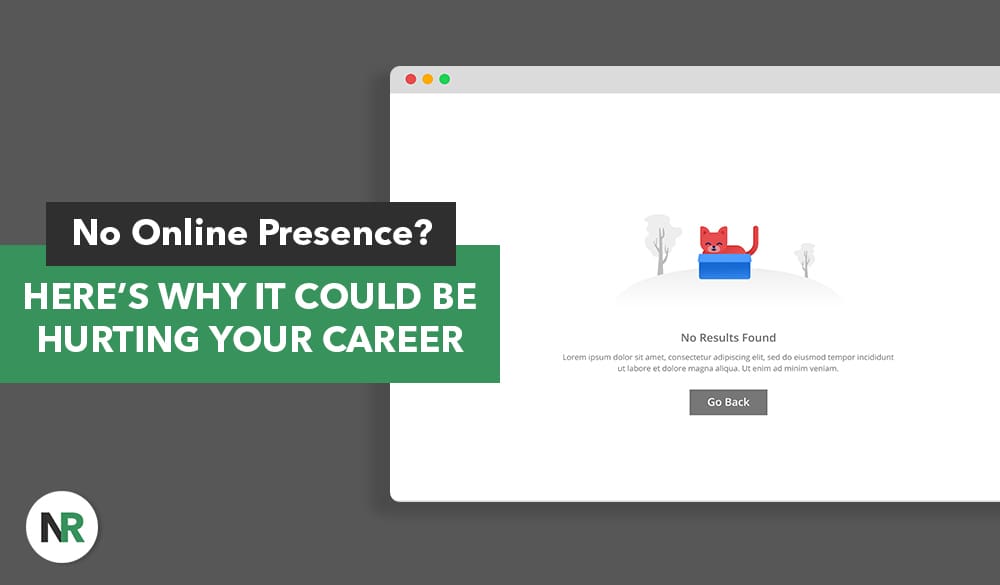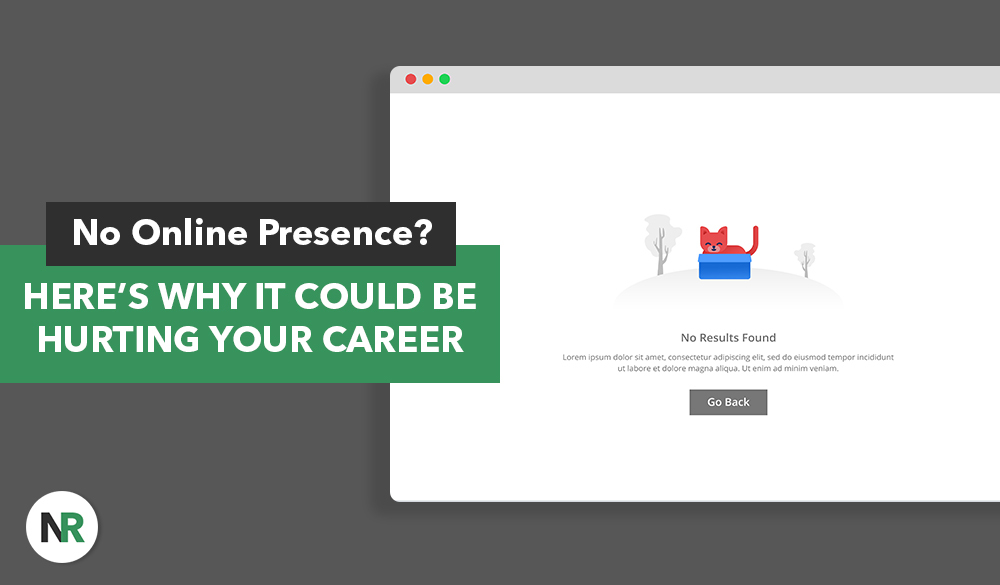
Your online presence is more important than ever. An individual’s online profile can greatly impact their career, influencing job opportunities, networking, and professional growth. Whether you’re actively posting on social media accounts or curating a professional LinkedIn account, your online presence speaks volumes about who you are.
What is an Online Presence?
Your online presence is the image and reputation you develop across various digital platforms, from professional networks like LinkedIn to social media channels like Facebook, Twitter, and Instagram. In an increasingly connected world, your online persona is key in shaping how potential employers perceive you, influencing hiring decisions and networking opportunities.
Every element—your professional website, social media engagement, or online portfolio—contributes to the story you tell about yourself. It’s not just about having a presence; it’s about crafting a narrative that resonates with your real-life interests and aspirations.
Why Is an Online Presence Important?
Maintaining an active and positive online presence is critical for job seekers today. Employers use online profiles to evaluate a candidate’s communication skills, professionalism, and overall character—all of which can affect hiring decisions. A well-curated online reputation provides social proof of your qualifications, allowing employers to assess your fit for a role quickly.
Here’s how an online presence can benefit you:
Establishes Your Professional Brand
A strong professional brand sets you apart in a crowded job market. Your online presence plays a crucial role in shaping how others perceive you. Platforms like LinkedIn and Instagram allow you to showcase your communication skills, highlight unique qualifications, and emphasize experiences that align with your industry.
To build a strong brand, consistency is key. Regular engagement with your network—whether through comments, shares, or posts—demonstrates expertise and helps you connect with others in your field. Here are some tips to enhance your professional brand:
- Engage with Industry Leaders: Follow and interact with influential figures in your field, sharing their insights and contributing thoughtful comments. This will keep you informed and place you in conversations with people who can impact your career.
- Create Valuable Content: Post articles, videos, or other content that reflects your expertise and interests. Sharing your knowledge can position you as a thought leader in your industry, attracting like-minded professionals.
- Network: Join relevant groups and participate in discussions to expand your professional connections. Networking isn’t just about finding a job; it’s about building relationships that can last a lifetime.
Increases Your Visibility
A well-established online presence boosts your visibility, making it easier for employers to find you. Today, employers frequently research candidates’ online activities before making decisions. You can increase your visibility by engaging with industry communities, posting valuable content, and connecting with peers.
Here are a few strategies:
- Optimize Your Profile: Use industry-relevant keywords throughout your profile to improve searchability. This will help potential employers find you when they are looking for specific skills or experiences.
- Network Actively: Build connections within your desired field and engage meaningfully. Having a network of professionals who can vouch for your skills and character is invaluable.
- Join Relevant Groups: Participate in online forums or groups discussing trends and job opportunities. Being active in these spaces can lead to unexpected opportunities and collaborations.
- Share Your Knowledge: Publish articles or updates that provide value to your network and showcase your expertise. This will enhance your visibility and demonstrate your commitment to your field.
Showcases Your Skills and Accomplishments
Your online presence is an ideal platform to showcase your skills and accomplishments, making it easier for potential employers to evaluate your qualifications. Here’s how to enhance your online profile:
- Regularly Update Profiles: Add new projects, skills, and certifications to keep your profiles current. This shows that you’re continuously growing and adapting in your career.
- Engage with Industry-Specific Platforms: Share your achievements and connect with others in your field. Industry-specific platforms can offer more targeted networking opportunities.
- Encourage Testimonials: Ask former colleagues or clients to provide testimonials that validate your skills. Positive feedback from others can significantly boost your credibility.
- Use Multimedia: Incorporate videos, infographics, or other visual elements to highlight your accomplishments. Visual content can be more engaging and memorable than text alone.
These steps improve visibility and align your online presence with employer expectations, giving you a competitive edge in the job market.
Get started with your free reputation evaluation today
How Does an Online Presence Affect Your Career?
Your online presence can shape employers’ views and influence your career prospects. With many companies using the internet to evaluate candidates, your online conduct and digital literacy can enhance or hinder job opportunities. It’s crucial to know how your digital footprint is perceived and manage it proactively.
Employers and Recruiters Use It to Screen Candidates
Employers are increasingly using online profiles to screen candidates. This digital scrutiny helps them assess candidates’ work ethic, cultural fit, and experience. However, privacy concerns are raised as recruiters gather information through social media and online profiles.
To navigate this, it’s important to maintain a professional online demeanor while protecting your privacy. Key considerations include:
- Understanding how social media impacts hiring decisions is crucial. Your social media presence can reveal much about your personality and values, so presenting yourself authentically yet professionally is crucial.
- Complying with privacy laws. Being aware of privacy settings on social media platforms can help you control what information is accessible to potential employers.
- Ensuring fair and unbiased screening procedures. While you can’t control how others perceive your online presence, you can ensure that what they see reflects your professional self.
Networking Opportunities
An active online presence creates numerous networking opportunities, helping you connect with industry professionals and discover job openings. You can be a valuable connection in your field by engaging authentically online.
Here’s how to maximize networking:
- Join Industry-Specific Groups: Participate in discussions on platforms like LinkedIn. These groups can provide support, advice, and job leads.
- Reach Out to Alumni: Connect with former classmates who may help open doors to new opportunities. Alumni networks can be a powerful resource for career advancement.
- Share Valuable Content: Post insights that attract like-minded professionals. Engaging content can spark conversations and build connections.
- Use Hashtags: Engage in broader conversations by using relevant industry hashtags. This can increase the reach of your posts and connect you with others interested in similar topics.
By cultivating a strategic online presence, you can create meaningful connections and stay informed about job openings and industry trends.
Demonstrates Your Digital Literacy
In today’s job market, digital literacy is a crucial skill. Employers want candidates who can effectively navigate social media, engage with digital content, and manage an online persona. Demonstrating digital literacy can enhance your professional reputation and highlight your ability to manage your digital footprint.
Here’s how:
- Engage Professionally: Interact respectfully with others online, maintaining a positive and professional tone. Your online interactions can reflect your interpersonal skills and emotional intelligence.
- Showcase Your Adaptability: Share your expertise and adaptability to new technologies. Being open to learning new tools and platforms can make you more attractive to potential employers.
- Position Yourself as a Competent Digital Communicator: Ensure your online presence demonstrates your proficiency in using digital platforms for professional purposes. This includes writing concise posts, engaging in thoughtful discussions, and sharing relevant content.
What Are the Risks of Not Having an Online Presence?
Not having an online presence can present several risks, especially in a job market where employers expect to find and evaluate candidates online. Here’s how neglecting your online presence could hurt your career:
Missing Out on Job Opportunities
A lack of an online presence can result in missed job opportunities, as employers often use social media and professional platforms to find candidates. You could be overlooked if you’re not active online, even if you’re qualified for the job.
Engaging on platforms like LinkedIn lets you stay visible to potential employers and connect with others in your industry.
Lack of Professional Credibility
Without an online presence, you may appear less credible to potential employers. Many employers today expect candidates to have a well-rounded professional persona online. Not having one could lead to doubts about your qualifications.
Your online presence serves as a testament to your professional journey and achievements.
Limited Networking Opportunities
Without an online presence, networking opportunities are limited. Most professionals today use social platforms to connect with others in their field. Without these connections, you could miss valuable relationships and job leads.
Engage with professional groups online and attend virtual events to expand your network. Networking is not just about finding a job; it’s about building a community of peers who can support and inspire you throughout your career.
How Can You Build an Effective Online Presence?
Building an effective online presence takes time and strategy. Here’s how to start:
Create a Professional LinkedIn Profile
A polished LinkedIn profile is crucial for establishing your online presence. It serves as your professional portfolio, allowing you to highlight qualifications, skills, and experience. Essential elements of a LinkedIn profile:
- Profile Picture: Use a clear, professional photo. Your picture is often your first impression, so ensure it conveys professionalism.
- Summary: Craft a concise summary that showcases your value and goals. This is your chance to tell your story and highlight what makes you unique.
- Experience: List your work history and measurable achievements. Be specific about your roles and the impact you made in each position.
Establish a Personal Website or Blog
A personal website or blog serves as a portfolio and a place to express your professional identity. This platform helps you share your accomplishments and demonstrate your expertise. To make the most of it:
- Highlight Your Skills: Showcase your work with case studies or testimonials. Real-life examples can provide tangible proof of your abilities.
- Optimize for SEO: Use relevant keywords to improve visibility. This helps potential employers find your site for specific skills or expertise.
- Provide Contact Info: Make it easy for potential employers to reach out. Ensure your contact information is visible and up-to-date.
Engage on Social Media
Social media is essential for building your online presence. Post valuable content regularly, engage with followers, and participate in industry-related discussions.
Here’s how to enhance your social media strategy:
- Post Valuable Insights: Share articles or tips that showcase your expertise. This can help establish you as a knowledgeable resource in your field.
- Engage with Comments: Respond to comments to foster meaningful conversations with your audience. This shows that you value your followers and are open to dialogue.
- Use Multimedia: Post videos, infographics, and other engaging content.
Conclusion
Building a strong online presence is vital for career success. It enhances visibility, establishes credibility, and creates opportunities for networking and job discovery. By curating your LinkedIn profile, creating a personal website, and engaging on social media, you can shape how potential employers perceive you and open doors to new career opportunities.














